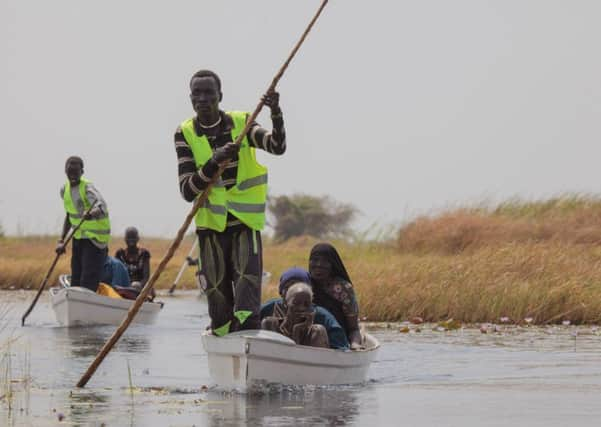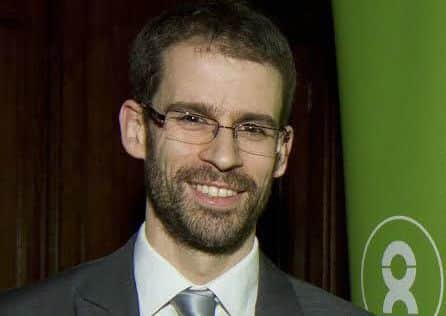Give just a little now and make a big difference to starving people of South Sudan


In South Sudan, the world’s newest country, 7.5 million people are in need of humanitarian help, and more than 3 million have been forced from their homes. The conflict in the country has disrupted trade routes and famine has been declared in parts of the country. After the famine in Somalia in 2011, the world said “never again”; that famine has been declared again reflects a collective failure to heed the countless warnings of an ever-worsening situation.
My colleagues have just returned from Nyal in Panyijar County, southern Unity State, where emergency levels of hunger – just one step from famine – have been declared. They saw people being carried to register for aid because they were simply too weak to walk; they either hadn’t had enough food to eat or their bodies couldn’t use what food they did have effectively because of sickness caused by a lack of clean water and sanitation.
Advertisement
Hide AdAdvertisement
Hide AdOxfam have been assisting populations in the area which is now South Sudan since the 1980s, but we have never witnessed such dire need. In the past year alone, we have helped mor than 600,000 people across the country to get the food and water they desperately need. While drought is hitting other countries in East Africa, the tragedy unfolding in South Sudan is man-made. The people of South Sudan are doing all they can to support their families and neighbours, but around 4,000 people per day are leaving the country in search of safety.


Angus McBride, 28, is an Oxfam Water and Sanitation Engineer from Markinch in Fife. He worked in South Sudan between 2014 and 2016 and is now in Gambella in Ethiopia, where more than a thousand people are crossing the border from South Sudan each week.
“More and more refugees from South Sudan are arriving all the time”, he explained. “There’s a constant flow of people crossing the border into Ethiopia, with others heading into Uganda, Kenya and the Democratic Republic of the Congo.
“People are being forced to come here because of a combination of the fighting and the lack of food. You can see how desperate they are when they arrive – they are not in a good state and they clearly haven’t had enough food to eat.”
While the declaration of famine in parts of South Sudan highlights the depth of this crisis, the current situation has been building for some time. “During my time in South Sudan I was surrounded by people who were hungry,” Angus added. “We managed to keep famine at bay in the areas where we were working, but people are still facing severe hunger and we know many other people are not getting any help and have no food at all. People come from miles away to reach food distribution centres – sometimes walking for five days. Delivering support is difficult and it is made more complicated by the fighting. However, if we are going to stop the spread of famine, now is the time to act – and fast.”


South Sudan needs peace and the level of need will rise so long as fighting continues. Oxfam is therefore calling on all parties to the conflict to uphold the ceasefire, ensure aid can reach those most in need safely and find a resolution to this conflict.
The annual rainy season, which starts in April or May, will make conditions even more difficult for the people in need of help and the aid agencies trying to reach them. Flooding makes roads and airstrips impassable, communities sheltering from the conflict on islands even more isolated, and causes a rise in cholera and other water-borne diseases. It is a difficult time under any circumstances but this year will likely be worse because so many people are already malnourished, away from their homes and have fewer resources to rely on.
DEC member charities are ready to scale-up their response across East Africa, but they need more funding. The UK Government’s decision to match pound-for-pound the first £5 million donated by the public to the Appeal was welcome, so too was the £200,000 given by the Scottish Government.
Advertisement
Hide AdAdvertisement
Hide AdBut, with every day that passes, more lives are lost. The people of East Africa need our help now.
Jamie Livingstone, Head of Oxfam Scotland. Donate to the DEC East Africa Crisis Appeal by visiting www.dec.org.uk, calling 0370 60 60 610, donating at any bank or post office, or sending a cheque. You can give £5 by texting the word SUPPORT to 70000.